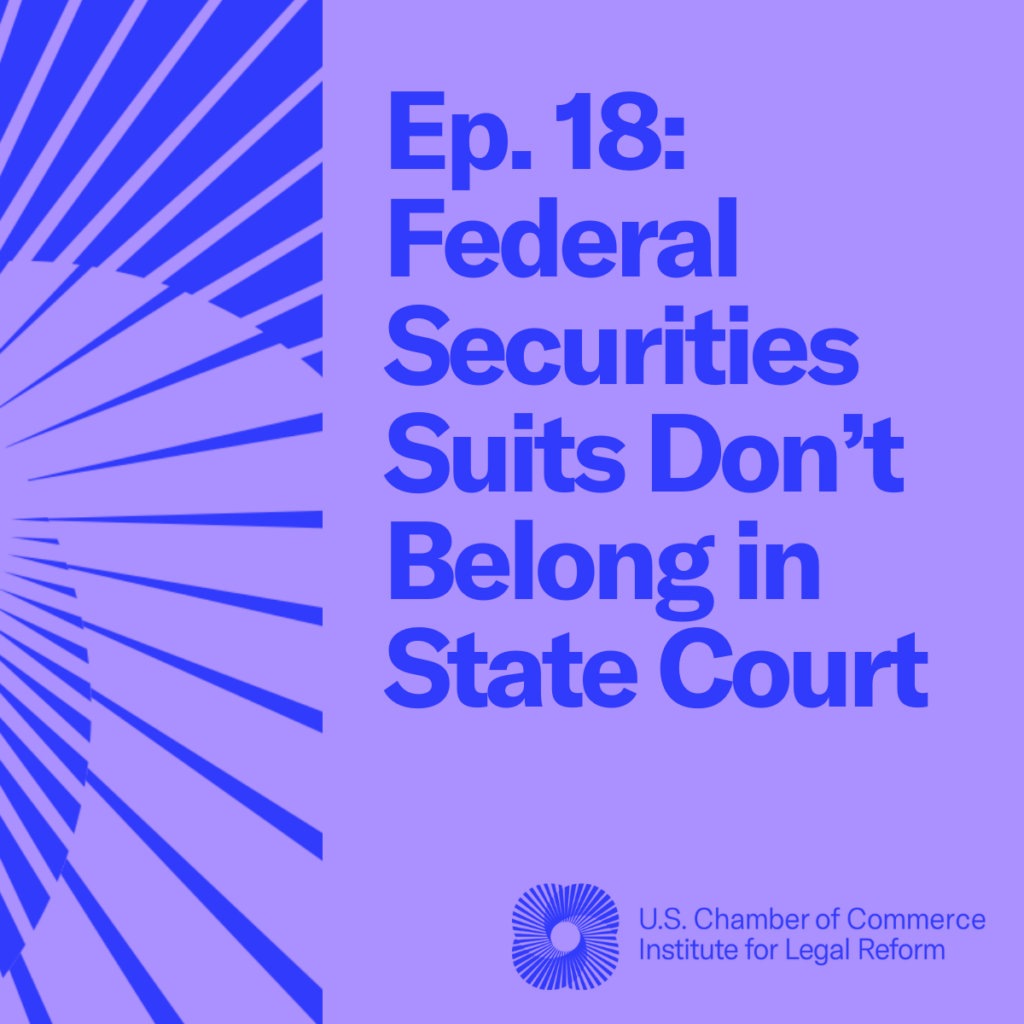U.S. Supreme Court to hear major challenge to securities class actions
WASHINGTON, D.C.—The U.S. Chamber Institute for Legal Reform (ILR) today released a new white paper “What’s Wrong with Securities Class Action Lawsuits?” which demonstrates the “irrationality and ineffectiveness” of securities class actions, and concludes that the costs that they impose on investors outweigh any benefits.
The paper, which includes the latest related studies and academic research, cites that in 2013, attorneys’ fees and expenses in securities class actions totaled $1.1 billion and that over the past decade the amount that went to plaintiffs’ attorneys from settlements was more than $10 billion.
On March 5th, the U.S. Supreme Court will hear oral arguments in the case of Halliburton v. Erica P. John Fund. The Court will decide whether to leave in place a judicially-created shortcut that makes it easier for securities fraud class actions to be certified by relaxing the traditional requirement that plaintiffs must prove that they “relied” on an alleged misstatement.
“For decades, the securities class action system has been touted as championing the average investor, when in truth most investors receive little or nothing and the system has become a billion-dollar special interest cash machine,” said Lisa A. Rickard, president of ILR. “The upcoming Supreme Court case and the surrounding policy debate will examine the merits of the securities class action system. But any system that benefits a few plaintiffs’ lawyers at the expense of millions of investors and pension holders must be changed.”
In addition to the legal question before the court is the policy question of whether securities class action lawsuits actually benefit investors and deter wrongdoing. The research cited in the paper shows that securities class actions do little to deter future violations or uncover wrongdoing.
“What’s Wrong with Securities Class Action Lawsuits?” also addresses plaintiffs’ lawyers’ continued control of the litigation, the abuses that led to criminal convictions in the 2000s, and multiple ways injured investors can vindicate their rights without the fraud-on-the-market principle.
The paper was prepared for ILR by Andrew J. Pincus of Mayer Brown.
ILR seeks to promote civil justice reform through legislative, political, judicial, and educational activities at the national, state, and local levels.
The U.S. Chamber of Commerce is the world’s largest business federation representing the interests of more than 3 million businesses of all sizes, sectors, and regions, as well as state and local chambers and industry associations.



